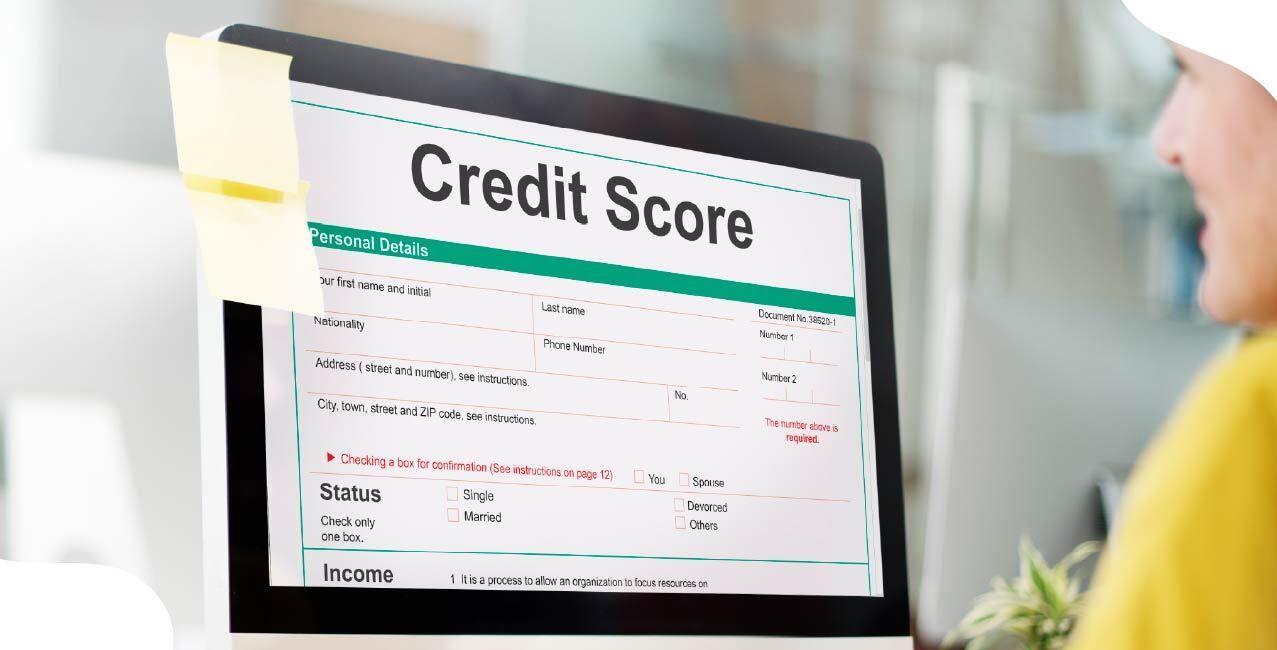What is the Best CIBIL Score? Range, Benefits & How to Improve It

Check Your Loan Eligibility Now
By continuing, you agree to LoansJagat's Credit Report Terms of Use, Terms and Conditions, Privacy Policy, and authorize contact via Call, SMS, Email, or WhatsApp
A CIBIL score is a 3-digit number that shows if a person can be trusted with loans or credit. It helps banks decide if they should give you money. The score usually goes from 300 to 900.
Let’s understand this with an example of Rahul, a 29-year-old IT worker from Pune, who applied for a home loan of ₹30,00,000. His application got rejected. Surprised, he checked his CIBIL score, which was 620.
He had missed a few credit card payments during the pandemic. With the help of his bank's credit advisor, Rahul started making timely payments and reduced his credit card use. In 8 months, his score jumped to 760. He applied again, and this time, his loan was approved with a lower interest rate. This shows how your credit score can impact big decisions like buying a house. Having a good CIBIL score is not just a number; it's a way to open financial doors.
This blog will help you learn how CIBIL scores are divided, what each range means, and how it can change your chances of getting a loan or credit.
CIBIL Score Range: Where Do You Stand?
Your CIBIL score, also known as a credit score, is calculated by TransUnion CIBIL, India’s leading credit information company. The score ranges between 300 and 900 and is based on your past repayment history, credit usage, types of credit, and recent credit behaviour.
A higher score means better chances of getting loan approval with lower interest rates. Most banks and NBFCs in India prefer a score of 750 and above, especially for large personal or home loans.
CIBIL Score Range and What It Means
Your CIBIL score shows how reliable you are when it comes to repaying loans. Here's what different score ranges mean and how they affect your chances of getting a loan.
A higher CIBIL score not only increases your chances of loan approval but can also help you get better interest rates and terms.
Priya, a 33-year-old self-employed designer from Jaipur, had a CIBIL score of 580 when she applied for a business loan of ₹12,00,000. The bank rejected her request, stating her three ongoing personal loans, with a total outstanding of ₹9,50,000, and her two missed EMI payments in the past 6 months as major concerns.
Her credit card utilisation was also above 75%, which further affected her score.
Read More – What Is A Credit Card? Features, Benefits & How It Works
Determined to improve her credit health, she decided to close one personal loan of ₹3 lakh ahead of time and brought down her credit card usage to below 30%. She also ensured on-time EMI payments every month without fail.
Within 8 months, her CIBIL score rose to 695. This time, when she reapplied for a business loan, she got approved for ₹10 lakh at 12.5% interest, much better than the 15.9% rate offered earlier.
What is a Good CIBIL Score in India?
A good CIBIL score shows that a person has paid their past loans and credit card bills on time. It also shows that the person has not taken too many loans or used too much of their credit. Most Indian banks, including Kotak Mahindra Bank, prefer a CIBIL score of 750 or more for giving quick approvals and better loan terms.
A score in the 700–749 range is also good and can be enough to get loans, but the best offers are usually given to those whose score is 750 or higher.
CIBIL Score vs. Loan Benefits (as per Kotak Mahindra Bank)
Your CIBIL score doesn't just impact loan approval; it also affects the kind of loan benefits you receive. Here’s how different score ranges influence your eligibility and interest rates, based on Kotak Mahindra Bank's standards.
The table above shows that when a person has a higher score, the loan becomes cheaper. This is because banks trust people with better scores. A small difference in interest rate can save a person a lot of money over the years.
Example:
Vikram, a 35-year-old software engineer in Delhi, applied for a personal loan of ₹10 lakh. His CIBIL score was 755, and the bank offered him an interest rate of 10.99%. His colleague Rohit, who applied for the same amount with a score of 680, was charged 14.5% interest. Over 5 years, Rohit ended up paying nearly ₹3.5 lakh more than Vikram.
How to Check CIBIL Score Online?
A CIBIL score is calculated by TransUnion CIBIL and Kotak Mahindra Bank as well, and it can be checked by anyone. Many banks and financial companies allow you to check it for free. Checking your own score is called a soft inquiry, and it does not lower your CIBIL score. It is a good habit to check your score once every few months to know where you stand.
Many people think it is hard to check their score, but it is very easy and can be done from home. Below are the steps that are usually followed to check it online:
Also Read - How to Apply For a Credit Card?
Steps to Check Your CIBIL Score Online:
- Visit the official Kotak Mahindra Credit Score Page.
- Enter your name, PAN number, email ID, and mobile number.
- Enter the OTP received on your mobile.
- Your credit score and report will be shown instantly on the screen.
Aarti, a 28-year-old content writer from Bhopal, wanted to buy a car and needed a loan of ₹6,00,000. Before applying, she visited the Kotak Mahindra Bank website and checked her score. Her CIBIL score was 742, which made her confident to apply. The loan got approved in 2 days, with a low interest rate of 11.25%.
Checking your CIBIL score is the first step before applying for any loan. It shows your financial health and helps you make better decisions. Remember, checking your score will not harm it, instead, it helps you improve it.
Which Factors Affect Your CIBIL Score?
A CIBIL score is not chosen randomly. It is calculated using real financial behaviour. Many small things can lower or raise your score. Even one missed payment can cause a big drop. A person’s repayment history, how much credit is being used, and how often loans are taken are some of the most important points that are checked.
Knowing these factors can help you take better decisions so that your score stays high. These are the key things that are considered when your CIBIL score is calculated:
Key Factors That Affect CIBIL Score
Your CIBIL score is influenced by several key factors. Knowing what affects it can help you take control and build a better credit score.
Paying on time, using less credit, and applying for loans wisely are simple steps that can keep your CIBIL score healthy and strong.
What Are the Benefits of Having a High CIBIL Score?
When a CIBIL score is high (750 and above), it becomes easy to get loans approved quickly. A person does not have to run behind the bank. In fact, some banks offer loans without asking too many questions. A good score shows that the person has handled money well in the past. It tells banks, “This person can be trusted.”
Because of this trust, banks and lenders offer cheaper interest rates, larger loan amounts, and even higher credit card limits. A good score also helps when applying for a home loan, car loan, or even an education loan.
A high CIBIL score comes with many benefits that can make borrowing easier and more affordable. Lets understand more benefits of high CIBIL Score:
With a good credit score, you not only save money but also enjoy smoother and faster access to financial services.
Simple Tips to Improve Your CIBIL Score Fast
CIBIL scores do not improve overnight, but they can be improved slowly with the right habits. Many people think that once the score drops, it stays low forever. But that is not true. By being careful and patient, a bad score can be changed into a good one. Lets See some tips to improve the CIBIL Score:
- Always Pay On Time: EMIs and credit card bills must never be delayed. Even one late payment lowers your score.
- Keep Credit Card Use Below 30%: If the credit limit is ₹1,00,000, try not to spend more than ₹30,000 a month.
- Do Not Apply for Too Many Loans at Once: Every time you apply, it is noted. Many applications make lenders think you need money badly.
- Close Old Loans Properly: After a loan is paid, ask the bank to update your report. Closed loans with no balance help improve the score.
- Use Different Types of Credit: A mix of a personal loan, a home loan, and a credit card shows that you can manage all types of credit.
- Check Your CIBIL Report for Mistakes: Sometimes, wrong data is shown. If mistakes are found, a complaint must be made quickly.
Conclusion
A good CIBIL score acts like a VIP pass in the world of finance. Whether you need a personal loan, a new credit card, or a home loan, banks look at your score before saying yes. The best CIBIL score is 750 or more.
Following simple steps like timely payments, low credit use, and avoiding too many loans can help you get and keep a high score. Don’t forget, it’s not magic, it’s just discipline. A strong credit score today means better financial health tomorrow.
FAQs
Q1. Can I get a loan with a low CIBIL score if I have a co-applicant?
Yes, applying with a co-applicant who has a high score can increase your chances of getting a loan, even if your score is low.
Q2. How does closing an old credit card affect my CIBIL score?
Closing old cards may reduce your credit history length and credit limit, which can negatively impact your score.
Q3. Do loan settlements harm your credit score?
Yes, settling a loan for less than the due amount shows financial stress and significantly lowers your score.
Q4. Is there a difference between a CIBIL score and a CIBIL report?
Yes, the CIBIL score is a 3-digit number, while the CIBIL report contains your detailed credit history and loan records.
Q5. Can improving my credit utilisation ratio boost my score fast?
Yes, reducing your usage to below 30% of your credit limit can quickly improve your score within 1–2 billing cycles.
Other Informative Pages | |||
Should You Close Old Credit Cards to Improve Your Credit Score | |||
About the author

LoansJagat Team
Contributor‘Simplify Finance for Everyone.’ This is the common goal of our team, as we try to explain any topic with relatable examples. From personal to business finance, managing EMIs to becoming debt-free, we do extensive research on each and every parameter, so you don’t have to. Scroll up and have a look at what 15+ years of experience in the BFSI sector looks like.
Subscribe Now
Related Blog Post

Salaried vs. Self-Employed: Who Gets a Personal Loan Faster in 2025?

Too Many EMIs? What to Do When Monthly Payments Become Unmanageable

Post Office Customer Care Number: Helpline & Support
Recent Blogs
All Topics
Contents
Quick Apply Loan
Consolidate your debts into one easy EMI.
Takes less than 2 minutes. No paperwork.
10 Lakhs+
Trusted Customers
2000 Cr+
Loans Disbursed
4.7/5
Google Reviews
20+
Banks & NBFCs Offers
Other services mentioned in this article





